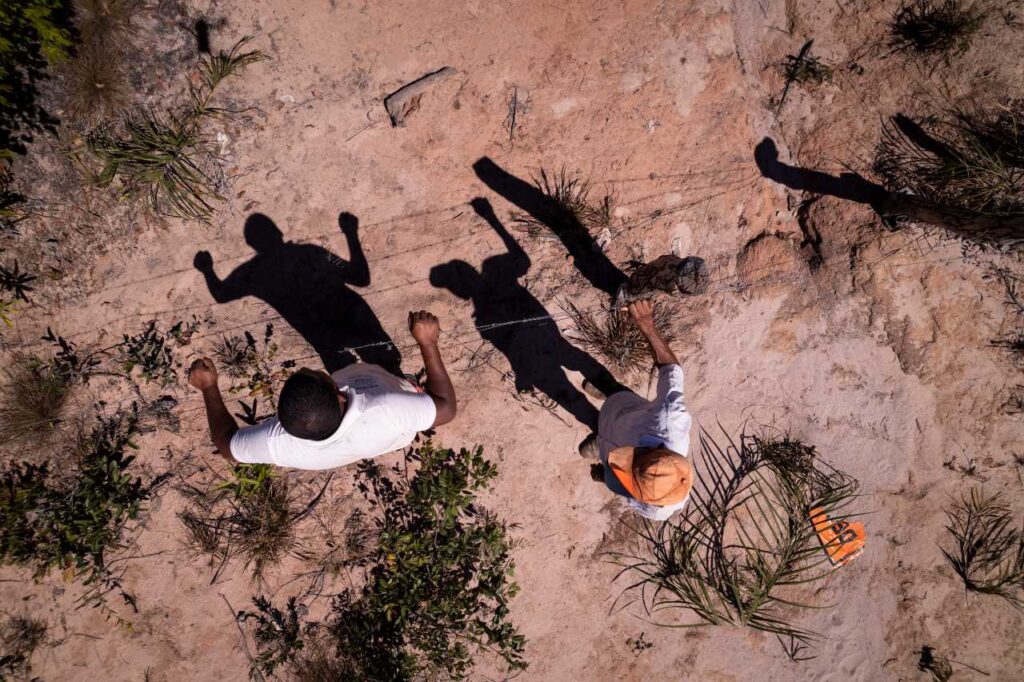Located in the rural area of Correntina, in western Bahia, the community of Capão do Modesto is at the centre of a land conflict that involves death threats, intimidation and destruction of community property. On the other side of this dispute are companies producing soybean, corn and cotton operating in Matopiba — the new Brazilian agricultural frontier in the states of Maranhão, Piauí, Bahia and Tocantins. They claim ownership of an area occupied for over 300 years by the residents of Capão do Modesto, according to local community members.
Agrícola Xingu, one of the companies involved in the conflict, is a soybean supplier to major multinational trading companies responsible for selling the commodity to countries in Europe, Asia and the United States. Also known as Xingu Agri, the company is a Brazilian subsidiary of the Mitsui & Co group, one of Japan’s largest economic conglomerates and one of the largest landowners in Matopiba.
An investigation by Repórter Brasil revealed new connections between the company and agribusiness giants. Documents obtained by the report show that, in 2021, soybean from Agrícola Xingu supplied the silos of ALZ Grãos, a joint venture created by Amaggi, the French Louis Dreyfus Company (LDC) and the local subsidiary of the Japanese group Zen-Noh Grain. The joint operation between the multinationals exports soybean and corn through its own port terminal in Maranhão.
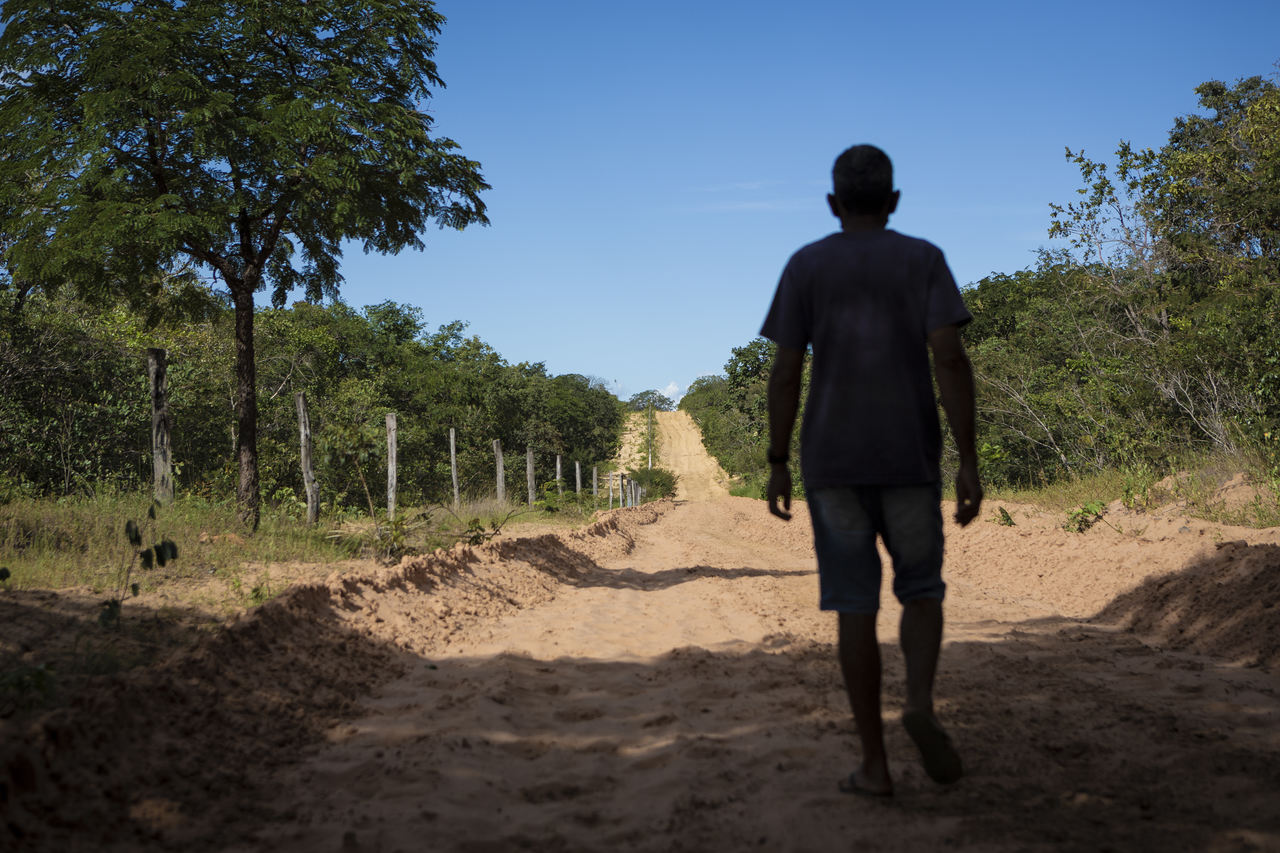
Agrícola Xingu’s grains had originally been acquired by another intermediary company: Nutrade Comercial Exportadora, a subsidiary of the Swiss conglomerate Syngenta, one of the main manufacturers of agrochemicals and seeds for Brazilian agribusiness. Through Nutrade, the Syngenta group operates in the so-called “barter” operations, in which commodities such as soybean are used as payment for inputs previously passed on to farmers.
Repórter Brasil obtained a copy of a contract providing for the delivery, in 2021, of almost 3,000 tons of soybeans from Nutrade to ALZ Grãos. The product, according to the document, would come from the Agrícola Xingu warehouses in São Desidério, a municipality neighbouring Correntina.
Contacted by the report, Agrícola Xingu said it “acts firmly to preserve the environment” and that it has the documents proving ownership of the disputed area. The company said that the community of Capão do Modesto has a “possible interest” in the property and claimed that there are no documents proving their right over the area. The company’s full statement can be read here.
Nutrade said that the farm where the soybean supplied by Agrícola Xingu originated and the property that was the focus of the land conflict are “areas with different registration numbers”. The trading company also said it adopts a process of verification of all areas connected to the negotiations signed, “paying full attention to all environmental and labour regulations”. Read the company’s statement in full here.
ALZ Grãos stated that, at the time of the purchase, it did not verify any social and environmental restrictions or land conflicts over the area of origin of the soybean acquired in negotiations with Nutrade. It also stated that it had no commercial relationship with Agrícola Xingu. As described by Repórter Brasil, this is a case of indirect supply, since the acquisition of soybean was made through commercial relations established with another trading company. Click here to see the full response.
Green land grabbing
The dispute with the Capão do Modesto community began in the 2000s, when commodity-producing companies operating in Matopiba started to claim ownership of preserved land in Correntina’s rural area.
These are areas currently used to compensate for environmental liabilities on farms in the region. According to the Brazilian Forest Code, rural properties located in the Cerrado should maintain at least 20% of their land with the original native forest. But when deforestation exceeds this limit, the law allows offsetting liabilities through the acquisition of preserved areas outside the property.
It is precisely one of these areas that overlaps with the lands claimed by the Capão do Modesto community. The “fecheiros”, as the members of this traditional community are known, develop their own methods of subsistence agriculture, cultivating fields, harvesting native Cerrado fruit and herding cattle, raised freely, without fences.
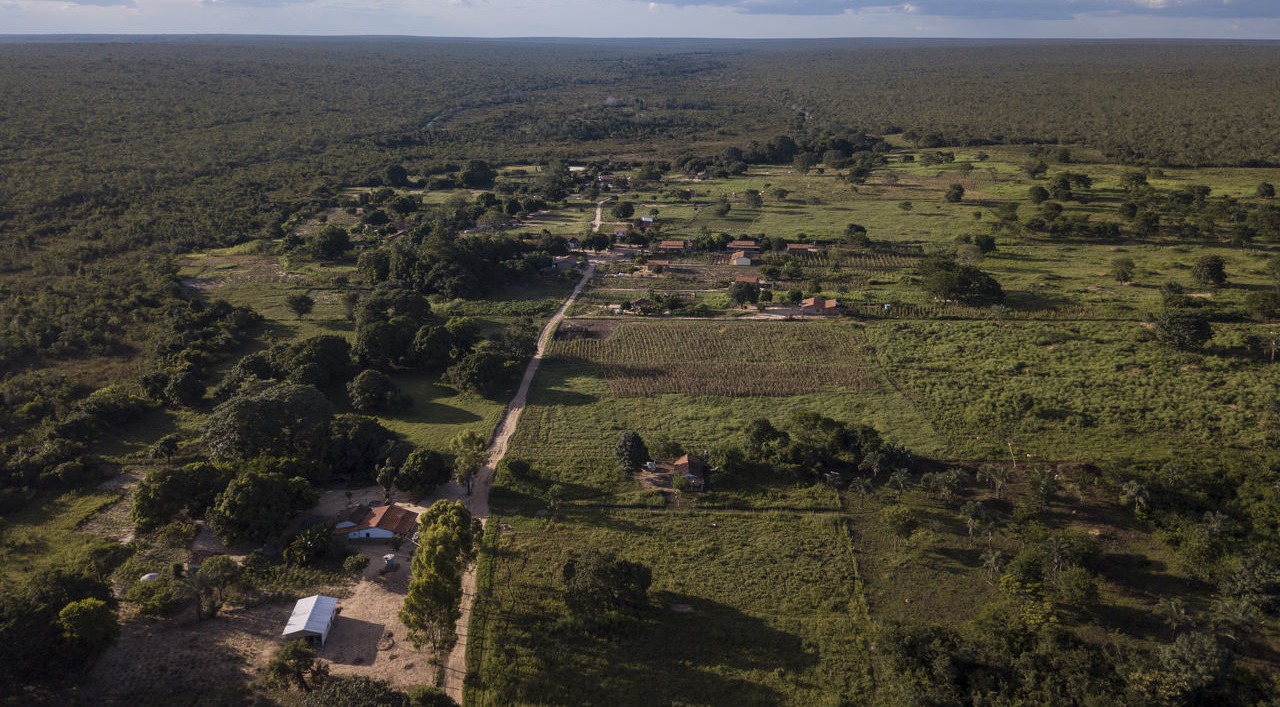
Although the 1989 Constitution of the State of Bahia provides for the recognition of traditional communities, such as those of “fundo and fecho de pasto”, and the granting of ownership certificates for these areas, many have still not been regularised. In this scenario, land conflicts multiply, generating true land chaos.
Lawyers and local activists interviewed by Repórter Brasil believe that the preservation area overlapping Capão do Modesto was acquired fraudulently. According to a report by Global Witness, its acquisition is part of a process of “green land grabbing”, in which lands traditionally occupied by local communities are usurped to serve as legal reserves for agribusiness companies with environmental liabilities.
The territory, which used to be used by the community for cattle grazing, now has fences and signs that prohibit the circulation of animals and members of Capão do Modesto. It is managed like a condominium by nine agricultural and livestock enterprises: right after the gate, you can see signs that identify the place as a legal reserve area of these companies.
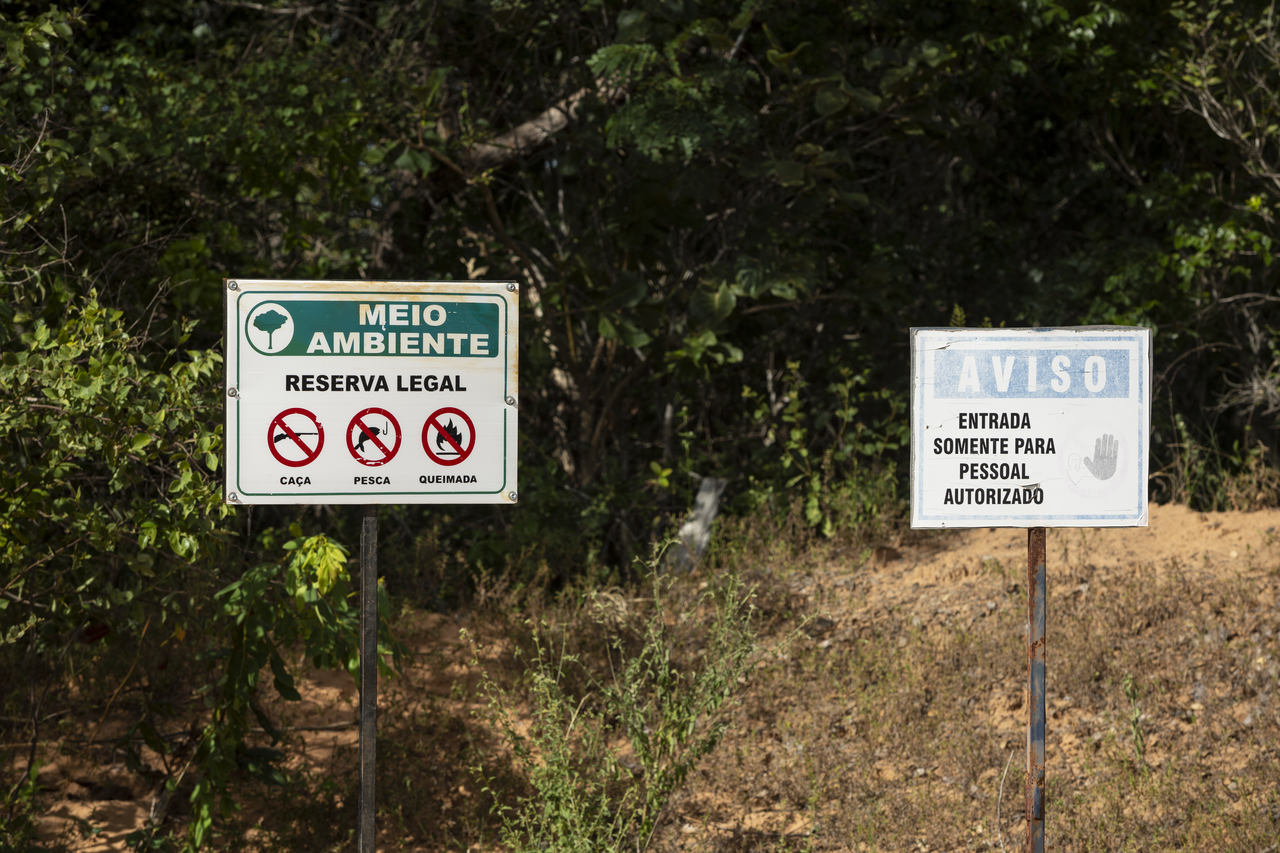
Repórter Brasil was in the community and talked to residents who reported a routine of threats by the private security teams hired by the companies to guard the area. “The farms have gunmen who you don’t even know who the boss is. They get the group together and put pressure on you”, denounces Vanderlino Barbosa, president of the association of the Capão do Modesto community.
The companies arrived, invaded, introduced machines and tore away the benefits that we had inside. Putting pressure, taking away our liberties”, Barbosa points out. “Where there was a watering trough, they came, they stayed there to scare the cattle away, to make you lose money and give up that area”, he adds.
Within the condominium, Agrícola Xingu claims to own the Tabuleiro VII Farm, a 3,000-hectare area bordering the property of farmer Geni Silva, great-granddaughter of Mr Modesto, after whom the traditional community is named.
Since 2015, community members have filed more than ten police reports reporting the intimidation they have suffered. The threats to the members are not only physical, but also judicial. In November 2017, part of the rural producers who claim to be owners of the legal reserves surrounding Capão do Modesto filed a lawsuit in the Bahia Court of Justice against members of the community.
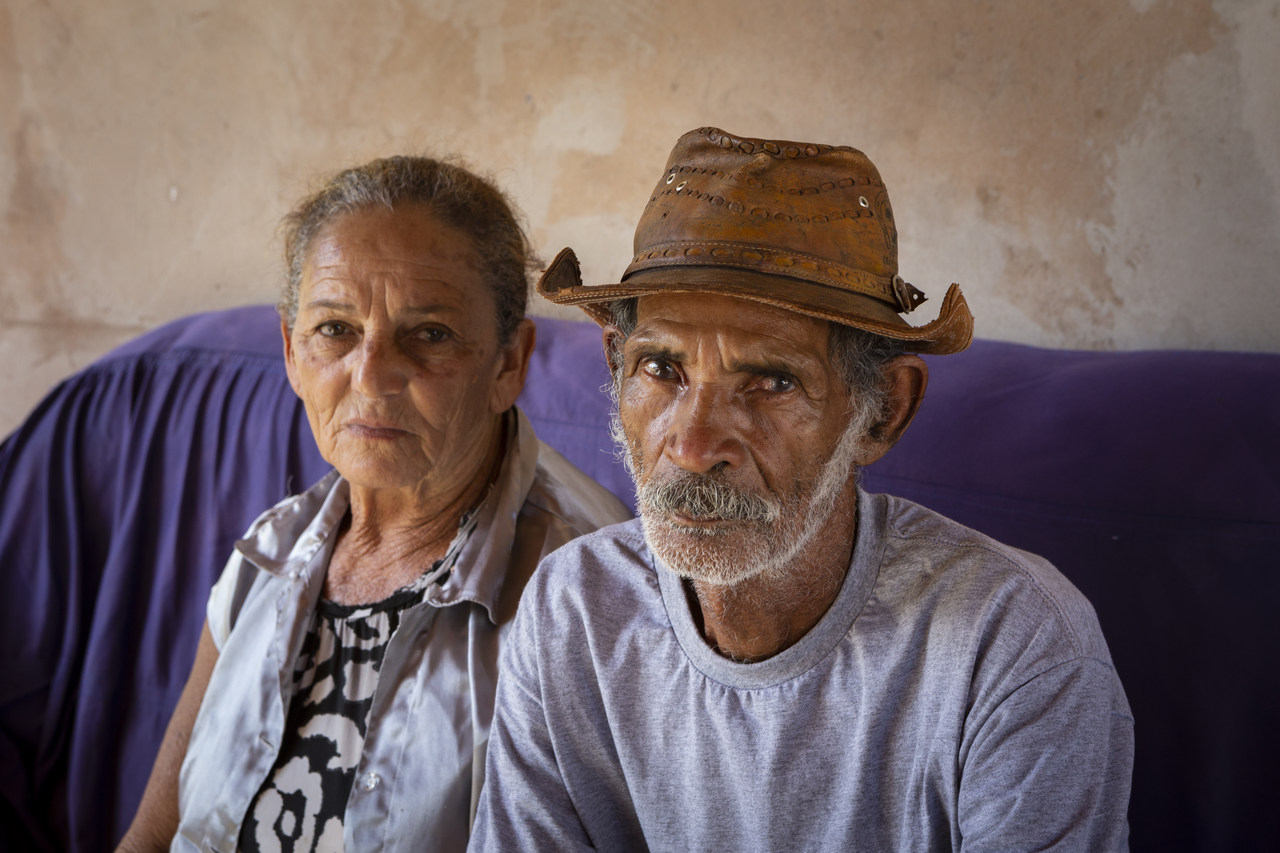
According to the companies, members of the Capão do Modesto community are invading their land and destroying native vegetation. The lawsuit aims to prevent the community from releasing cattle in the area. For the “fecheiros” of Capão do Modesto, this is one more way of pressuring them to leave their land.
In March 2022, a court decision ordered the expropriation of the area, recognizing the traditional possession of the community. A few days later, however, the decision was revoked and the companies continue to own the land. The case is still pending a final decision from the courts.
Business chain contaminated by rights violations
In western Bahia, Agrícola Xingu owns several farms for grain and cotton production. Altogether, the company’s cultivation areas between the municipalities of Correntina and São Desidério cover an area of 67,900 hectares, according to a report published by the organisation Global Witness. The expansion of the company’s activities in the region occurred largely through the deforestation of native vegetation, according to information from the organisation Chain Reaction Research. Between 2000 and 2017, the company deforested 32.1 thousand hectares of Cerrado.
ALZ Grãos, one of the links in the flow of soybean from Agricola Xingu, exports the product to other large trading companies in the sector, according to customs data accessed by Repórter Brasil. There are records, for instance, of sales to Cargill subsidiaries in Asia and to the Chinese group Cofco. In Europe, ALZ Grãos has exported grain to Bunge subsidiaries over the past two years. One of the main destinations is Spain, where Bunge operates in several markets, including the production of biodiesel. Spain and Germany are the two main European producers of animal feed. Soy is most used in cattle, poultry, and pork feed.
In a statement, Bunge said it does not comment on commercial relations with specific producers, but said it is “committed to achieving deforestation-free supply chains by 2025”. Regarding direct purchases, the company claims to have “100% traceability and monitoring” and said it is “acting strongly to encourage the industry to strengthen the traceability and monitoring of indirect purchases”.
Through the Brazilian Association of Vegetable Oil Industries (Abiove), trading companies Cargill and Cofco said they “do not buy soy from illegally deforested areas” and that they “support their indirect suppliers by constantly seeking operational solutions and evaluating methodologies to engage these suppliers with their protocols”. Check the companies’ answers in full.
